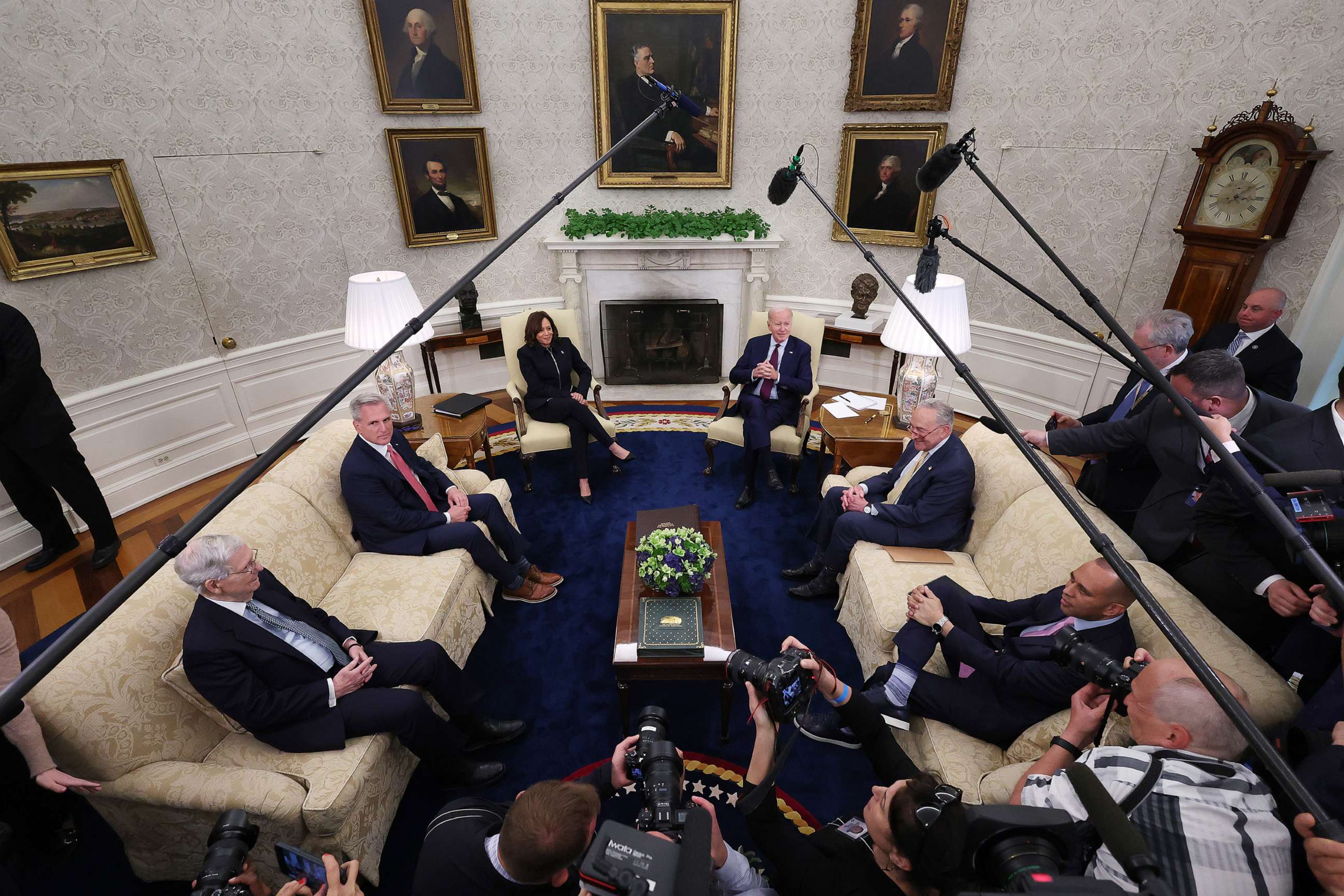Biden cuts upcoming foreign trip short amid debt ceiling showdown
Speaker McCarthy said it's "possible" to reach a deal by the end of the week.
With time running short to address the debt ceiling or risk default, President Joe Biden said Tuesday he will cut his upcoming foreign trip short to be back in time for "final negotiations."
Biden will depart Wednesday to meet with G-7 leaders in Japan, but will now travel back Sunday and no longer visit Papua New Guinea or Australia.
Biden would have become the first sitting U.S. president to visit Papua New Guinea and was scheduled to join the Quad summit in Australia. House Speaker Kevin McCarthy and other Republicans had criticized Biden's plans to go abroad as lawmakers face a possible June 1 default deadline.
"The President has made clear that members of Congress from both parties and chambers must come together to prevent default, as they have 78 times before. The President and his team will continue to work with Congressional leadership to deliver a budget agreement that can reach the President's desk," White House press secretary Karine Jean-Pierre said in a statement.
Negotiations on the debt ceiling resumed Tuesday afternoon when Biden, McCarthy, House Minority Leader Hakeem Jeffries, Senate Majority Leader Chuck Schumer and Senate Minority Leader Mitch McConnell met at the White House.
Biden, speaking later at a White House celebration of Jewish Heritage Month, called it "a good, productive meeting" on a path forward to avoid default.
"There's still work to do but I made it clear to the speaker and others that we'll speak regularly over the next couple of days, and the staff is going to continue meeting daily to make sure we do not default," the president said, adding he was shortening his trip "in order to be back for the final negotiations."

McCarthy emerged from the discussion stating the two sides were still far apart but also said it's "possible" a deal could soon be reached in a matter of a few days.
"It is possible to get a deal by the end of the week," McCarthy told ABC News Senior Congressional Correspondent Rachel Scott outside the White House. "It's not that difficult to get to an agreement."
What changed in Tuesday's meeting, McCarthy said, was how the parties will negotiate moving forward. Biden agreed to appoint two top members of his staff to work directly with McCarthy and his staff, the speaker said, rather than negotiations between all four congressional leaders.
"The structure has changed so we're in a better process," McCarthy said.

After the meeting, Schumer told reporters that the leaders agreed they needed to pass "a bipartisan bill with bipartisan support in both chambers."
"Default is just the worst, worst alternative and having a bipartisan bill in both chambers is the only way we're going to avoid default," the Democratic Senate leader said.

Adding pressure ahead of Tuesday's debt ceiling summit, Treasury Secretary Janet Yellen said the economic shock that would result from an unprecedented default "could lead to a recession."
"It's essential Congress act as soon as possible," she said as she delivered remarks in downtown Washington, stating they're already seeing "the impacts of brinkmanship" and "default would generate an economic catastrophe."
Yellen has repeatedly warned the U.S. could default in early June, possibly as soon as June 1, though the exact date remains uncertain.
Yellen wrote Monday in a letter to McCarthy the Treasury was already seeing adverse impacts on the economy as negotiations continue -- including increased borrowing costs -- and more harm could come if lawmakers wait until the final hour to strike a deal.

Biden and Democrats had insisted Republicans take default off the table, and separate the debt ceiling from the 2024 budget. Republicans, on the other hand, said they'd done their job by passing the Limit, Save, Grow Act last month to raise the debt ceiling and enact deep spending cuts.
Possible areas of agreement on budget talks to emerge since the last debt ceiling meeting between the so-called "Big Five" include clawing back billions of dollars in unspent COVID-19 relief and reforming the permitting process for energy projects -- a GOP priority -- sources familiar with the talks told ABC News.
"This shouldn't be this hard," McConnell said after Tuesday's meeting. "No. 1, we know we're not going to default. They know it, we know it. We're running out of time."




